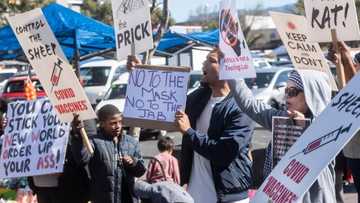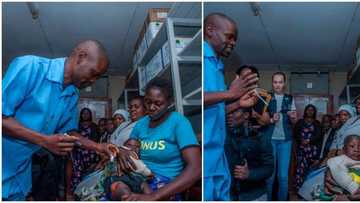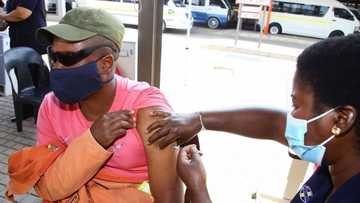Analysis: How Vaccine Hesitancy Impacts the Country's Rollout Programme
- Vaccine hesitancy and vaccine acceptance are two highly topical subjects that are taking the country and the world over
- Various studies are being conducted to figure out what is causing the lack of vaccine registration in South Africa
- Briefly News takes a look at a few of the studies and its findings regarding both vaccine hesitancy and vaccine acceptance
PAY ATTENTION: Click “See First” under the “Following” tab to see Briefly News on your News Feed!
Vaccine hesitancy is plaguing the country with psychologists revealing that there are several factors behind why people refuse to get the Covid-19 jab. One of the reasons is a lack of relevant information about the vaccine.
The World Health Organization (WHO) believes that vaccine hesitancy is a global health threat. According to SABC News, psychologists state that the country needs to do more to address the vaccine hesitancy spreading around.
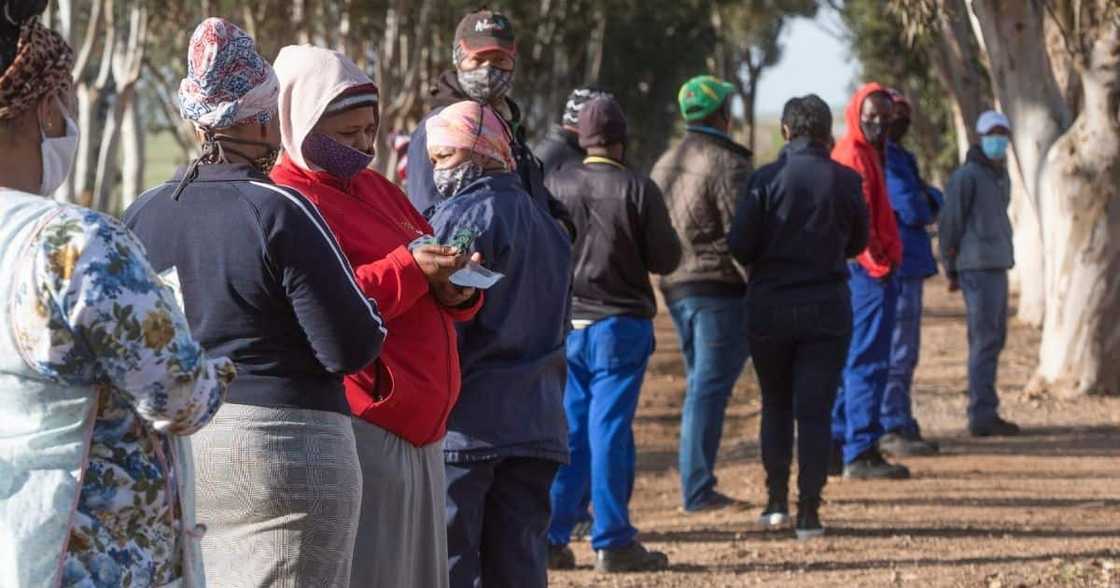
Source: Getty Images
South Africa's vaccination rollout programme hits a curb
In February, South Africa launched its vaccination rollout programme with the aim of vaccinating 70% of the population by the end of the year. In order to achieve this, the country would need to vaccinate 250 000 people per day.
Enjoy reading our stories? Download the BRIEFLY NEWS app on Google Play now and stay up-to-date with major South African news!
Since the end of July, around 200 000 people were vaccinated per day as the vaccine hesitancy began to settle in. To date, five million members of the public have been vaccinated, this is according to the Health Department.
Studies on vaccine hesitancy reveal startling results about South Africans' response to the Covid-19 jab
BusinessTech revealed that the University of Johannesburg's Centre for Social Change and the Human Sciences Research Council released the outcome of their fourth round of the Covid-19 Democracy Survey.
The survey focused on vaccine hesitancy and acceptance in South Africa. The main findings revealed that the rate of vaccine acceptance rose from 67% to 72%. The first figure was recorded in a previous round conducted in December last year. This includes people who have already received their vaccine, people who probably would get the vaccine and people who would most definitely get the vaccine.
Results from over 7 800 people were gathered between 25 June and 20 July with most responses gathered through the Moya App. The responses were augmented by a telephonic survey done with people 60 and older to put forward a larger demographic.
Last month, the National Income Dynamics Study - Coronavirus Rapid Mobile Survery (NIDS CRAMP) revealed that vaccine acceptance was on the rise among their group of 5 000 respondents.
Between Feb/March and April/May, the number of people who would agree to receive the vaccine increased from 71% to 76%. The study is in accordance with the UJ/HSRC study.
But one major poll, the Afrobarometer survey, run by the Institute of Justice and Reconciliation, found that vaccine acceptance was far lower than the figures reported by NIDS CRAM or UJ/HSRC.
More studies reveal that vaccine acceptance may not be on the rise
A study by Afrobarometer showed that around 43% of its respondents were one of two: somewhat likely to get the vaccine or very likely. Approximately 12% of respondents were somewhat unlikely to get the vaccine while a large 42% of surveyees were unlikely to get the vaccine.
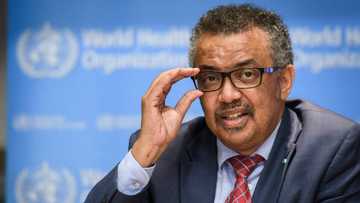
Read also
"This is a historic moment": WHO recommends earthshattering malaria vaccine use for children
This survey involved 1 600 adults who were meticulously selected to ensure a wide demographic.
Business for SA (B4SA) believes that vaccine hesitancy revolves more around access to the jab
According to B4SA's Timothy Schultz vaccine hesitancy isn't solely about avoiding getting the jab but more about gaining access to the vaccine. Schultz believes that the country needs to the barriers
This is according to Business for SA’s (B4SA) Timothy Schultz who said the country needed to reduce the barriers to access if it wanted more people to get vaccinated, according to TimesLIVE.
Schultz explained that people receiving the R350 Covid-19 grant will have to use a portion of that money to get public transport in order to arrive on time at a vaccination site. This money has other uses for families thus creating a large barrier for those wanting to receive the vaccine but being financially unable to.
Overall conclusion on vaccine hesitancy and vaccine acceptance
Although various studies have been conducted, many contradict each other. Vaccine hesitancy is, however, a large contributing factor to the detriment of the vaccination rollout programme in South Africa.
As Schultz mentioned, there are other issues that don't seem to be taken note of, such as finances.
Over 11 million vaccinated, government slowly reaching daily target
Previously, Briefly News reported that the Ministry of Health has revealed that over 11 million Covid-19 vaccines have been administered so far. Among those are five million adults who are fully vaccinated within the country.
Over 60 000 adults between the ages of 20 and 39 received the vaccine on Friday alone, this was the first day that the 18 to 34 age group was allowed to get the Covid-19 jab. The government is also moving closer to its target of administering 300 000 vaccines per day.
Covid-19 statistics for the last 24-hour reporting period
The country has recorded another 10 346 new cases. This brings the cumulative number of laboratory-confirmed cases to 2 708 951. The Health Department also confirmed 369 new Covid-19 related deaths, thus bringing the cumulative number of fatalities in the country to 79 953.
Source: Briefly News

